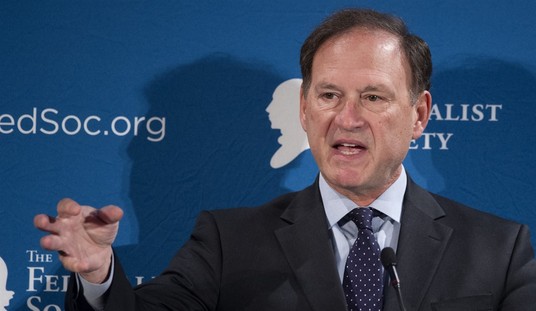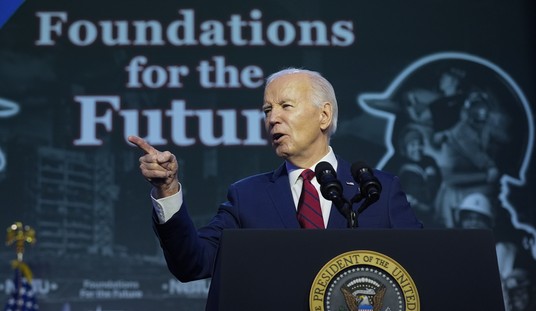We have an opioid crisis in this country, and far too many Americans have had to bear the pain of watching their loved ones suffer or even die as a result. The crisis is real, but one recent proposal from Sen. Kirsten Gillibrand (D-NY) is an appalling bad response: restricting opioid prescriptions for acute pain to only seven days.
In a tweet that drew thousands of critical replies — including from patients and doctors who have actual experience with these issues — Gillibrand promoted her bill, remarking that “no one needs a month’s supply for a wisdom tooth extraction.”
If we want to end the opioid epidemic, we must work to address the root causes of abuse. That’s why @SenCoryGardner and I introduced legislation to limit opioid prescriptions for acute pain to 7 days. Because no one needs a month’s supply for a wisdom tooth extraction.
— Sen. Kirsten Gillibrand (@gillibrandny) March 15, 2019
I’m one of those patients. I had dental surgery last month and while everything thankfully went fine with minimal complications, I was in a fair amount of pain afterwards. I was very, very glad my surgeon had given me a prescription for an adequate supply of an opioid painkiller, hydrocodone (generic Vicodin) to be exact.
As I posted in a thread on Twitter, I was in pain for more than seven days. I was cognizant of the fact that this was a painkiller that needed to be treated seriously and that it was not safe to drive while taking them. I spaced them out as much as I could tolerate and switched to ibuprofen as soon as possible, but a seven day prescription would have been insufficient. Being able to minimize my pain and get adequate rest at night was especially beneficial for my healing.
I luckily did not have major complications but a seven-day prescription would have required me to either find someone else to drive me across town back to the surgeon’s office, pay for an Uber ride both ways, or go off the painkillers and drive while in serious pain. All for an office visit that would have been otherwise completely medically unnecessary.
I literally had dental surgery last month & needed painkillers more than a week. Surgeon gave me Rx for hydrocodone. Kept careful note of how often I took it, reduced dose & dropped down to ibuprofen as soon as I could stand it but I was in a lot of pain for more than 7 days /1 https://t.co/sYEuucjiew
— Sarah Rumpf (@rumpfshaker) March 20, 2019
I didn’t have major complications. Just more than 7 days of pain. Putting overly strict restrictions on opioids won’t stop abuse. You’re making felons out of people who are sick & in pain. And then they turn to far more dangerous & addictive street drugs. /3
— Sarah Rumpf (@rumpfshaker) March 20, 2019
If I had only gotten 7 days of medicine after my surgery I would have had to get someone to drive me across town back to the doctor (not supposed to drive on those pills) or gone off the meds & driven while in pain. Either way, an unnecessary visit. /5
— Sarah Rumpf (@rumpfshaker) March 20, 2019
I did not even get my stitches out for over two weeks after the surgery. At any point, if I had needed help, the surgeon’s office had staff ready to answer my call and a 24-hour answering service available when their office was closed. I’m very happy with the medical care I received, including the pain management plan.
Requiring me to go back just to refill a prescription would have been disruptive, an unneeded expense, and a waste of both my time and the doctor and his staff’s time. Don’t complain about high health care costs when you mandate unnecessary office visits, Senator.
I’m far from the only one who has had this kind of experience. Gillibrand’s Twitter feed was flooded with replies criticizing her idea as bad medicine, including several from verified doctors:
As a cancer doctor, I find this a horrifically bad idea that won't anything to decrease opioid abuse. What it will do, in contrast, is to make the lives of chronic pain sufferers much worse and make it MUCH harder for their doctors to take care of them. WTF were you thinking?
— David Gorski, MD, PhD (@gorskon) March 20, 2019
Last year, the State of Michigan implemented a similar law. It's a disaster. It makes it harder for doctors to adequately treat patients' pain and hugely inconveniences patients. It's a horrible law. It's done nothing thus far to decrease opioid abuse.
— David Gorski, MD, PhD (@gorskon) March 20, 2019
Today, Gillibrand attempted to defend herself, claiming that her bill would not apply to patients with chronic pain, or “pain being treated as part of cancer care, hospice care, end-of-life care, or palliative care.”
Sarah, thanks for taking the time to raise your concerns. Our bill takes into very careful consideration the needs of patients with chronic pain. The prescription limit wouldn’t apply to the treatment of chronic pain. https://t.co/1EJASl8gLd
— Sen. Kirsten Gillibrand (@gillibrandny) March 20, 2019
This proposal also would not apply to pain being treated as part of cancer care, hospice care, end-of-life care, or palliative care. We’ve put it in more detail here: https://t.co/w26dG4qpgE
— Sen. Kirsten Gillibrand (@gillibrandny) March 20, 2019
Besides the obvious trouble in defining these categories — if you are recovering from surgery to remove a cancerous tumor, is that “acute pain” or “cancer pain,” so could you have more than 7 days of pain pills? — Gillibrand is still ignoring the many surgical procedures that have nothing to do with cancer and thankfully are not terminal, but still impose serious pain and extended recovery times on patients.
The Senator could do research solely in her own Twitter feed and find a long list of stories about people recovering from broken bones, women after hysterectomies (warning: image of surgical scar at link), c-sections and other surgeries, and even complications from a wisdom teeth extraction — the exact procedure she couldn’t imagine would need more than a few days of pain pills.
And then there’s this tweet that perfectly sums up the issue:
I was unable to stand up straight for 5 days after my c-section, I needed those meds for the two weeks I had to drag myself to and from the nicu. My doctor and I made the decisions on how to manage my pain, STAY OUT OF MY HEALTHCARE!
— out of work 🤷🏼♀️ (@textualcongress) March 20, 2019
Precisely. The Democrats have been preaching for years that abortion should be solely a medical decision between a woman and her doctor, and fought bitterly against even the smallest regulations (just look at former Texas State Senator Wendy Davis’ infamous filibuster against a bill that required abortion clinics to maintain basic sanitation and safety standards, because heaven forbid we try to minimize the risk that the mother die along with her baby).
But here comes Sen. Gillibrand to argue that some lawmakers in Washington know better than you and your doctor how you should manage your recovery after shattering your ankle or having invasive surgery.
This is nanny-state, big brother government interference at its worst. The most cursory of Google searches brings up countless studies and research papers from a variety of groups across the political spectrum (including work by private companies, nonprofit organizations, and government agencies) criticizing this approach as likely to only make the opioid problem worse.
The reality is that while the overall opioid overdose rate has been increasing, the number of those overdoses from prescribed medicines is decreasing. In fact, the risk of addiction and overdose from opioids legally prescribed in a medical setting remains very, very low. One 2018 study found just one percent of patients who took prescription pain medicine after surgery exhibited signs of “opioid misuse” (a broader category than addiction or overdose), and even chronic pain patients have a very low risk of addiction when taking legally prescribed drugs.
Overly onerous restrictions on these legal prescriptions makes it harder for both patients and doctors, leads some doctors to avoid providing prescriptions out of fear, and drives the patients who have problems with under-treated pain to the black market, where they are far more likely to encounter unpredictable dosages, mixtures with riskier drugs like fentanyl and heroin, and an overall higher chance of addiction and overdose. A tragically long list of patients desperate from the inability to legally control their pain have attempted or committed suicide.
Like most areas where government attempts to meddle, overregulating opioids won’t make Americans with real medical problems stop having pain, or stop wanting to treat that pain.
A far more practical solution would be to reclassify marijuana from a Schedule I drug to a lower level. There is a fair and valid debate about legalizing marijuana, but the fact is that there are a number of studies showing therapeutic benefits for a growing list of medical conditions, including some that are otherwise chronic and debilitating.
The current federal Schedule I classification categorizes marijuana as having no accepted medical uses and being unsafe to use, even under medical supervision. That has been proven to be absolutely incorrect, and this federal law makes any research more complicated and more expensive to conduct. There are also studies showing risks from marijuana use, especially when it is used recreationally by younger people, but again, the excessively restrictive federal classification makes studying and understanding those side effects harder.
The reality is that Americans aren’t dying from marijuana overdoses, but lawmakers who want to look like they’re “doing something” (perhaps to bolster a presidential campaign that stumbled out of the gate?) aren’t focusing their energy on expanding research opportunities for marijuana-based treatment, but instead continue to deliberately misrepresent the nature of the opioid crisis and make it harder for doctors and patients to make the best medical decisions.
My body, my choice, Senator Gillibrand. And I’m glad my doctor and I chose to treat my pain after surgery with an opioid painkiller.
Read my RedState article archive here.
Foliow Sarah Rumpf on Twitter: @rumpfshaker.













Join the conversation as a VIP Member